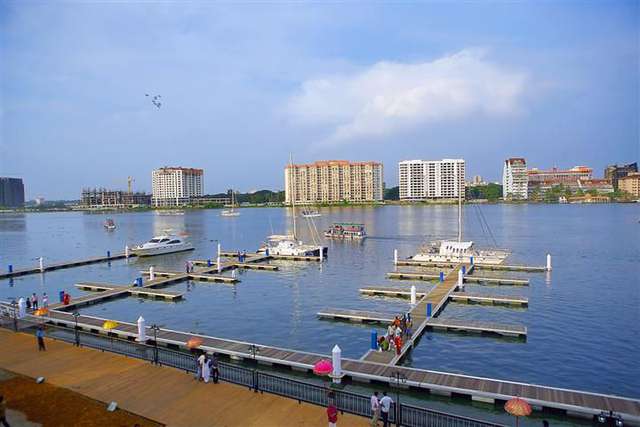Articles

Participants of the ‘Floating Campus’ to Visit CPPR
October 24, 2017
Interactive Session with Students of Floating Campus
October 26, 2017Improving Business Climate: Why It Has Become Economic As Well As Political Necessity For Kerala
Two congruent yet distinctive studies on Ease of Doing Business (EoDB) reveal that despite its high ranks in social development indices, Kerala lags far behind other states in providing the right kind of ecosystem to do business. What does this mean for the contemporary state of its economy and how can Kerala take the leap forward?
The impressive literacy rates, vital statistics and social indices of Kerala had once been the norm for development other states strived to achieve. While these continue to serve as benchmarks for social development, such remarkable achievements have been overshadowed by stagnating capital investment and growing unemployment that have been plaguing the state’s economy in recent times. A concoction of state interventionism and lack of apposite institutional reforms has hindered the individual’s liberty to improve one’s own economic conditions as well as those of the society. The dichotomy between the social and economic indicators continues to haunt the state, while the mantra of cooperative, competitive federalism echoes in the background.
EoDB ranks do not have direct correlation with macroeconomic indicators or economic outcomes of the state. However, studies reveal an indubitable correlation between gross domestic product (GDP) per capita and the business regulatory environment. Furthermore, the EoDB index provides investors with information on promising business destinations, making the rankings crucial for attracting entrepreneurs and investments that are vehicles for employment generation and economic growth.
In Need Of A Jumpstart
The EoDB index prepared by the Department of Industrial Policy and Promotion (DIPP) in collaboration with the World Bank Group codifies the states based on business-friendly reforms they have implemented. The 340-point Business Reform Action Plan (BRAP), which extensively lists out the reforms the states have implemented to encourage business and entrepreneurship, serves as a comprehensive blueprint for the states to attract, promote and retain businesses. A 2016 report published by DIPP classifies states into three groups based on the implementation rates, where Kerala was placed in a rather embarrassing ‘jumpstart needed’ category, which had a 0–40 per cent implementation rate.
BRAP exposes Kerala’s exigency for tax reforms, environment and labour reforms, and inspection reforms, and instructs taking advantage of digital means for the issuance of construction permits, implementation of single-window systems, publishing the list of relevant documents and related information online, and paper-less courts for commercial disputes. The report points out why despite its human capital, Kerala does not appeal to investors, which is reflected in the rising unemployment rates and stagnation of the state’s economy. The fact that Kerala is the only South Indian state in its category explains the exodus of labour and capital to the neighbouring states.
Implementation Not Enough
A recent study conducted by the NITI Aayog in partnership with the IDFC institute reveals perturbing details about the actuality of EoDB across India. The study done across all states differs from the DIPP study in the sense that the former was conducted among enterprises on how they perceived the business environment and the general awareness among enterprises of the business reforms implemented, as opposed to opinions from experts or government officials. The study places Kerala in a ‘low growth’ category, which poses a multitude of business regulations. The study finds that even though there is high awareness of reforms among enterprises in Kerala, it takes 214 days to get various permits in order to start a business, while the national average is 118 days.
Opportunities And Challenges
The Model Shops and Establishments Act is a progressive legislation allowing shops and establishments to run 24/7. At a time when unemployment rates are sliding and labour-intensive sectors are in an urgent need of rejuvenation, the Act looks propitious in generating employment, boosting consumption and reducing the gender gap by lifting existing restrictions on women to work at night and allowing shops and establishments to operate freely.
The Act also has certain parallels with BRAP with online registration and renewal of shops and establishments being one of its cardinal areas. Despite its potential to catalyse economic outcomes, the Act is likely to be subdued, due to the lack of single-window systems and joint inspections under various labour laws. The Model Act puts forth self-certification and web-based inspections to improve transparency. However, digitalisation of the respective government departments remains a challenge.
The NITI Aayog had also identified lack of labour market flexibility, easy entry and exit laws, information dissemination and a ‘level-playing field’ for small and large firms as areas in need of major reforms. The socialist political background of the state and, ergo, institutional sclerosis pose a serious impediment to the much-needed reforms. But with rising levels of unemployment and cost of living agitating even the apolitical, the case of EoDB has turned into an economic as well as a political desideratum.
Nimish Sany is Research Assistant at Centre for Public Policy Research. Views expressed by the author is personal and does not represent that of CPPR
This article was first published in the Swarajya, click here to read: Improving Business Climate: Why It Has Become Economic As Well As Political Necessity For Kerala
Nimish Sany was a Research Assistant at the CPPR Centre for Comparative Studies.


